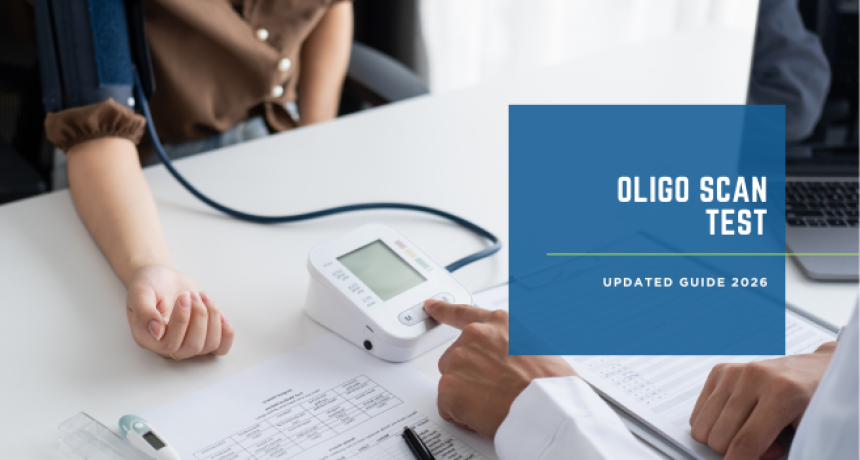Lifestyle Changes for Thyroid Health: How to Manage It Naturally
2025-05-23 Introduction Your thyroid doesn’t just regulate your metabolism — it touches almost every part of your body, from energy and mood to menstrual cycles, digestion, and heart health. But what many people don’t realize is that thyroid dysfunction doesn’t happen in isolation. Environmental toxins, chronic stress, poor sleep, gut imbalances, and sedentary lifestyles can all push your thyroid off track. While medications play a role in managing conditions like hypothyroidism and Hashimoto’s, true thyroid healing also requires lifestyle intervention. At L&B Clinic, we help clients rebalance their thyroid by addressing the root causes — using functional nutrition, toxin detoxification, stress support, and hormone-friendly living. Why Lifestyle Matters in Thyroid Dysfunction Medical treatment often focuses on symptom control (e.g., thyroid hormone replacement), but it doesn’t always address why the thyroid slowed down or got attacked in the first place. Thyroid health is deeply connected to: Chronic inflammation Adrenal stress Nutrient deficiencies Environmental hormone disruptors Poor gut health (70% of thyroid hormone is converted in the gut) “No thyroid protocol is complete without a focus on lifestyle. You can’t out-medicate a body that’s under chronic stress or lacking essential nutrients.” Stress is one of the most overlooked causes of thyroid dysfunction, particularly in Hashimoto’s and subclinical hypothyroidism. Suppresses TSH (thyroid stimulating hormone) Inhibits conversion of T4 to active T3 Elevates reverse T3 (a hormone blocker) Triggers autoimmune flares 10–15 minutes of guided breathwork or yoga nidra daily Adaptogenic herbal support (Ashwagandha, Holy Basil)* Counseling or CBT to reframe chronic stress patterns Digital detox hours in the evening Nature exposure: grounding, sun therapy Thyroid hormone production and conversion follow your circadian rhythm. Poor sleep disrupts everything from cortisol balance to hormone receptor sensitivity. Sluggish T3 production Daytime fatigue and cravings Poor glucose control and weight gain Worsened brain fog and mood instability Set a sleep-wake cycle with regular timing Block blue light 1 hour before bed Magnesium-rich foods in the evening (pumpkin seeds, almonds) Avoid caffeine after 2 PM Use guided sleep meditations or relaxation music Boosts metabolism Improves mood and energy Increases insulin sensitivity Enhances T4 to T3 conversion Improves lymphatic drainage (for detox and inflammation) BUT: Excessive or high-intensity workouts can worsen adrenal fatigue and flare Hashimoto’s symptoms. At L&B Clinic, every client gets a custom nutrition plan based on labs, symptoms, and bio-individuality. Hormonal balance is easily disrupted by everyday exposure to xenoestrogens, plastics, heavy metals, and pesticides. BPA from plastic bottles or containers Parabens and phthalates in cosmetics Pesticides on non-organic produce Fluoride in water Non-stick cookware (Teflon/PFOA) Switch to glass or stainless steel water bottles Use clean, paraben-free personal care products Choose organic produce for high-residue foods (leafy greens, berries) Use natural cleaning agents Consider seasonal functional detox programs Over 70% of thyroid hormone (T4) is converted to active T3 in the gut — especially in the presence of healthy microbiota and liver support. Constipation or diarrhea Food sensitivities Bloating after meals Brain fog Nutrient malabsorption GUT 360 microbiome testing Functional foods (fermented vegetables, bone broth) Herbal support (under expert care) Personalized prebiotic/probiotic protocols In subclinical or early cases, yes. With targeted lifestyle changes and nutrition, many people restore thyroid balance naturally. Most clients report improved energy, mood, and metabolic stability within 6–12 weeks. Yes, but intensity must be tailored. Low-impact, cortisol-friendly routines are best. No. We avoid aggressive or starvation-style detoxes. Only gentle, functional detox methods are used at L&B. If autoimmune markers are present (Hashimoto’s), gluten and dairy removal may help reduce inflammation. If you’re experiencing thyroid-related symptoms — fatigue, weight fluctuations, anxiety, poor sleep, or hormonal imbalance — the answer may lie in your daily lifestyle patterns. At L&B Clinic, we combine clinical insight with integrative solutions — from nutrition and detox to breathwork and sleep therapy. Our programs are doctor-supervised, lab-guided, and built for sustainable change. 📍 Book a thyroid lifestyle consultation 🧪Explore advanced testing & nutrition support 🌿Start your personalized hormone-healing plan Indian Thyroid Society (2022). Lifestyle and Thyroid Management: National Consensus Guidelines. Harvard Health (2023). Stress, Sleep & Hormonal Health. NIH Office of Dietary Supplements. Selenium, Iodine, and Zinc in Thyroid Function. Mayo Clinic (2023). Endocrine Disruptors and Thyroid Disease. Journal of Clinical Endocrinology & Metabolism (2021). Exercise and Thyroid Health: Emerging Research.
— Dr. Deepika Krishna, Founder, L&B Clinic1. Stress Management: Calming the HPA-Thyroid Axis
How Stress Affects Thyroid:
L&B Recommendations:
2. Optimizing Sleep for Hormonal Rhythm
What Poor Sleep Can Cause:
L&B Recommendations:
3. Exercise: The Right Movement for Thyroid Healing
Benefits of Movement:
Best Exercise for Thyroid:
4. Nutrition for Thyroid Health
Key Nutrients:
5. Reducing Endocrine Disruptors: Detox for Hormonal Clarity
Common Endocrine Disruptors:
Detox Tips from L&B:
6. The Gut-Thyroid Connection
Symptoms of Gut-Thyroid Imbalance:
Gut Healing Support at L&B:
Integrative Thyroid Reset at L&B Clinic: Step-by-Step
FAQs on Lifestyle Changes for Thyroid Health
1. Can thyroid function improve without medicine?
2. How long before lifestyle changes show results?
3. Is exercise safe with Hashimoto’s?
4. Are all detox plans safe for thyroid?
5. Should I avoid gluten or dairy with thyroid issues?
Begin Your Thyroid Reset with L&B
Medically Reviewed by: Dr. Deepika Krishna, Founder, L&B ClinicReferences
.png)















